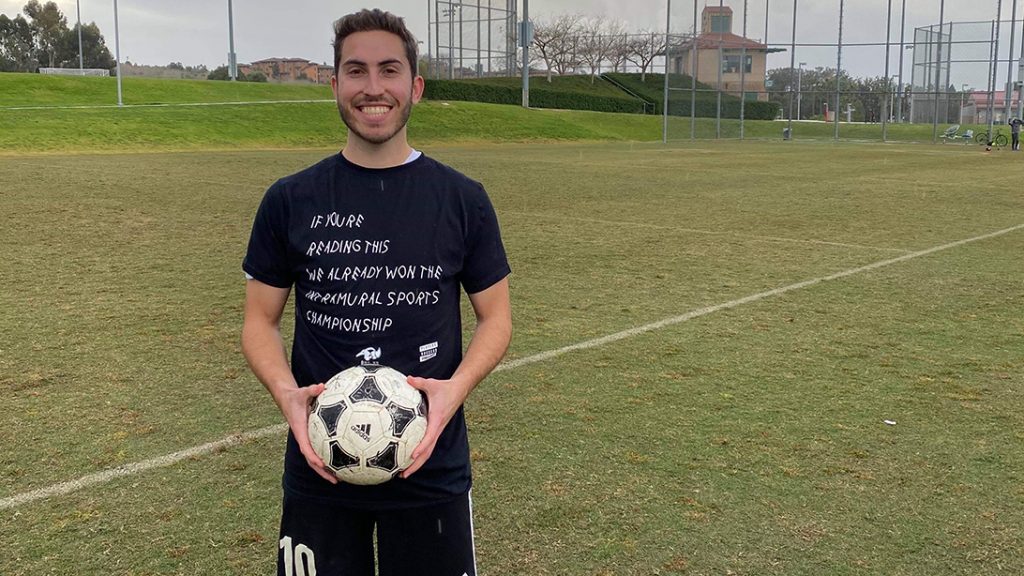
Alvin Garcia
Fifth year PhD candidate studying Plasma Physics, Fusion Energy, Classifying fast-ion driven instabilities using machine learning (ML) methods
UCI's Alvin Garcia Selected for Prestigious Fellowship
IRVINE, Calif. – UCI’s Alvin Garcia has been selected as one of 65 graduate students representing 29 states nationwide for the Office of Science Graduate Student Research (SCGSR) program’s 2021 Solicitation 1 cycle. Alvin is a fifth year PhD candidate studying Plasma Physics, Fusion Energy, Classifying fast-ion driven instabilities using machine learning (ML) methods. Program, which trains advanced degree candidates to become future government leaders. As a public health analyst in CDER, Menglu is at the forefront of health policy, helping to shape FDA’s response to the current opioid crisis.

Through world-class training and access to state-of-the-art facilities and resources at DOE national laboratories, SCGSR prepares graduate students to enter jobs of critical importance to the DOE mission and secures our national position at the forefront of discovery and innovation.
Awardees were selected from a diverse pool of graduate applicants from institutions around the country. Selection was based on merit peer review by external scientific experts. Since 2014, the SCGSR program has provided more than 765 U.S. graduate awardees from 153 universities with supplemental funds to conduct part of their thesis research at a host DOE laboratory in collaboration with a DOE laboratory scientist. In this cohort of awardees, four are the first SCGSR awardee to come from their institution, and about 11% attend minority serving institutions (MSIs). For more information on the prestigious fellowship, visit: https://www.energy.gov/science/articles/does-office-science-graduate-student-research-scgsr-program-selects-65-outstanding.
UCI Graduate Division was lucky enough to catch up with Alvin and talk to him about his well-deserved honor.
UCI GD: What was it about you and your research that made you win this award?
Alvin: I had the full support of UCI Professor Heidbrink and Princeton University Professor Kolemen. Heidbrink prepared the 2009–2017 Energetic Particle Database to study low frequency plasma wave modes at the DIII-D National Fusion Facility. Shortly after, I was admitted into the Machine Learning and Physical Sciences (MAPS) Program at UCI, where I discovered the potential to apply machine learning techniques to the dataset. Heidbrink encouraged me to begin a new project that applied what I learned in MAPS. ML researchers working in Kolemen’s Group at the Princeton Plasma Physics Laboratory (PPPL) heard about my work and contacted me expressing interest in the dataset. During our first meeting together, we established a win/win collaboration that would benefit the PPPL and UCI groups. One month later, Kolemen shared the DOE SCGSR opportunity with Heidbrink, and they encouraged me to submit a proposal. Their full support made my application stand out and contributed towards the application being accepted.
UCI GD: What research will you be doing for the duration of the fellowship? What do you hope to achieve with it?
Alvin: The goal of the project is to use Artificial Intelligence to detect the presence of unstable plasma wave modes at the DIII-D tokamak. Fusion reactions occur naturally in the Sun, where intense gravity and heat fuse Hydrogen nuclei into heavier atoms and release large amounts of energy. Scientists worldwide are working towards the safe, sustainable, and carbon-free production of Fusion Energy inside donut shaped vessels called Tokamaks. Fusion plasmas are heated to temperatures hotter than the sun and confined using large magnets to create the conditions necessary for controlled nuclear fusion inside tokamaks. Scientists can investigate the presence of unstable plasma conditions using experimental measurements. However, doing this would require lots of time and experience. My objective is to build AI models that would automatically detect and classify unstable plasma wave modes during real-time experiments to help scientists achieve stable plasma conditions.
UCI GD: Tell us what you enjoy doing when you aren’t doing research.
I’ve been playing soccer since I can remember, and it is something I love doing. I’m a winger on the UCI Men’s Club Soccer team, captain of an Intramural Team, and member of a Pick-Up Soccer Group. My current daily routine is essentially do research, play soccer, sleep, and repeat. Also, I’ve played Intramural flag football and basketball with the Physics Department Team in the past.
UCI GD: As we close out Hispanic Heritage Month, what does your Hispanic Heritage mean to you?
Alvin: Hispanic Heritage in my context means learning to persevere through adversity. My parents immigrated from Mexico as teenagers determined to find opportunities that would improve the quality of their life. Although I was born and educated in the United States, my drive was inherited from Hispanics. I’m the only one in my family to graduate from college and the only one in my extended family to study Physics. Furthermore, the percentage of US Physics PhDs awarded to Hispanics is 2%. My past is full of challenges and discouraging statistics, but I never cared much about them. I simply worked hard and persevered through all adversity like the Hispanic generations that came before me. Also, I love food from Guadalajara, Jalisco, Mexico—carnes en su jugo, tortas ahogadas and pozole is so good!